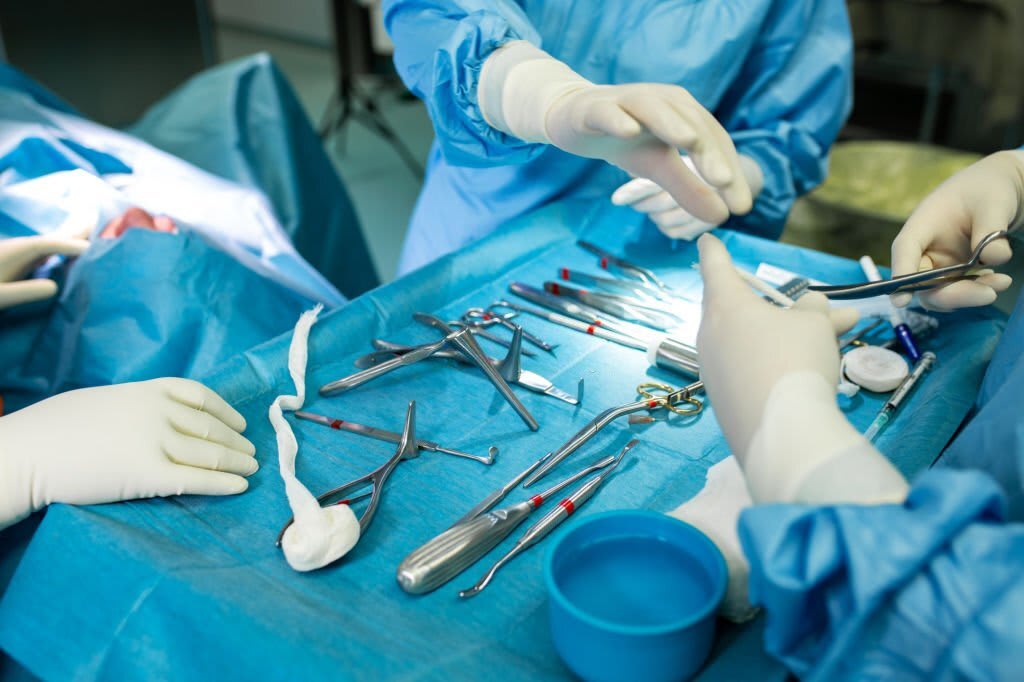Maintaining Surgical Instruments: Best Practices for Longevity
Proper maintenance/care of surgical instruments are crucial. It ensures longevity and prevents infections. Learn best practices to keep them in top condition.

Surgical instruments are key tools used in medical procedures. They are used to diagnose and treat various medical conditions. These instruments need proper maintenance and care to ensure their longevity and safety.
In this regard, the quality of instruments and tools matters a lot. Hospitals and clinics should not compromise on quality. They must buy from reputed and trustworthy surgical instrument manufacturers and suppliers.
When surgical instruments are not maintained or handled, they can become contaminated with dangerous bacteria. It can lead to infections.
Why Proper Maintenance and Care of Surgical Instruments is Important
Surgical tools and equipment are expensive and their replacement is costly. Maintaining and caring for these instruments can extend their longevity. Besides, contaminated instruments can cause infections and more health complications. That extra hospital stays and more medical costs.
Thus, appropriate care and maintenance are necessary for surgical tools. It ensures patient safety and reduces the rate of infections.
Proper cleaning and sterilization of tools are essential to prevent the chances of infections. It can remove microorganisms such as bacteria, viruses, and fungi that can cause infections.
Cleaning Techniques
The first step in maintaining surgical instruments is cleaning them. Cleaning instruments involves removing dirt, organic matter, and debris.
It can shelter bacteria and other dangerous microorganisms. Cleaning techniques can vary depending on the type of instrument. So, the manufacturer's instructions should be followed.
Some general cleaning ways include:
Manual Cleaning
This involves cleaning with the help of detergents using brushes and sponges. It's important to use soft brushes to avoid damage to the surface of the instrument. The cleanser or detergent should be PH-neutral.
It must not contain bleach or chlorine. After cleaning, the instruments should be rinsed with water to remove the traces of the cleanser/detergent.
Ultrasonic Cleaning
This involves dipping surgical tools in a cleaning solution. After cleaning, expose them to the ultrasonic waves. These ultrasonic waves can remove dirt and debris by producing small bubbles. Best used for delicate and intricate tools that are hard to clean.
Sterilization Techniques
Sterilization is a process that involves killing microorganisms, bacteria, viruses, and fungi. The sterilization can differ depending on the type of tool and the medical facility’s protocols. Common types of sterilization include:
Steam Sterilization
Steam sterilization is known as autoclaving. It's the most used procedure for sterilization in medical facilities. It involves exposing instruments to high-pressure steam at a temperature of about 250 °F. It's the most effective method of sterilization.
Chemical Sterilization
Chemical sterilization involves using chemical agents, such as hydrogen peroxide or ethylene oxide. It's employed to kill microorganisms that are deposited on tools. It's used for instruments that can not withstand high temperatures and pressures.
Proper Handling and Storage
Taking care of surgical tools involves more than cleaning and sterilizing them. Proper handling and storage are essential to ensure longevity and safety.
Mishandling and storing the tools in improper storage areas can render them hazardous to use. So, tools must be used with utmost care.
Be cautious while handling the tools to prevent any damage or contamination.
It's recommended to wear gloves. Avoid touching the instruments with bare hands as natural oils and moisture can build up, leading to rusting or erosion over time.
Avoid hitting or dropping the tools on hard surfaces. It can damage delicate equipment or tools.
Storage Guidelines
It's crucial to store equipment in a proper storage place. Follow the simple guidelines to avoid damage or corrosion.
Store the tools in cool and dry places to avoid humidity and erosion.
Wrap wet instruments in a sterilization pouch. Place them in a sterilization vessel to maintain their sterility.
Organize the tools with proper labels for your own ease and convenience.
Importance of Following Best Practices for Surgical Instrument Care
Following best practices for surgical instrument care is crucial. It ensures patient safety and reduces the risk of infections.
Contaminated or damaged instruments can cause infection in some cases. It leads to more health complications, increased hospital stays, and added medical costs. Proper care and maintenance of surgical instruments can prevent such incidents. It is best for improved patient outcomes and reduced healthcare costs.
By following best practices for surgical instrument care, medical facilities can give quality care to facilities and maintain a safe and healthy environment.
Not only this but the quality of the instrument matters a lot. Getting instruments from a reliable surgical instruments manufacturer and supplier is the first step and maintenance comes second.
Final Word!
If you are looking for a reliable and trustworthy manufacturer and supplier then there is no better lead than GerMedUSA. With their best and most durable german stainless steel-made tools you can make a worthwhile investment.
You can be stress-free of their tools and equipment as they provide nothing less than the best. The tools they manufacture are designed ergonomically to provide the best user experience. GerMedUSA Inc offers the best rates with all-inclusive services like warranty and online delivery!





Comments (2)
Nice
Great write-up!!